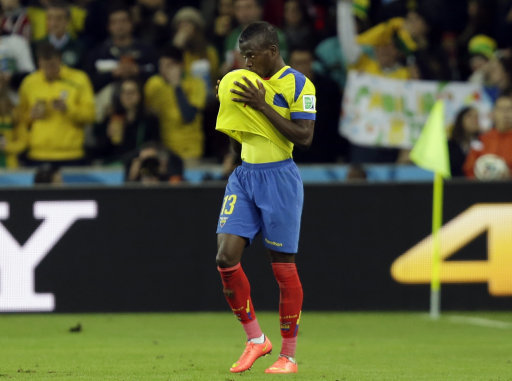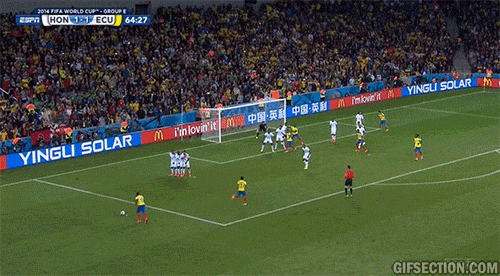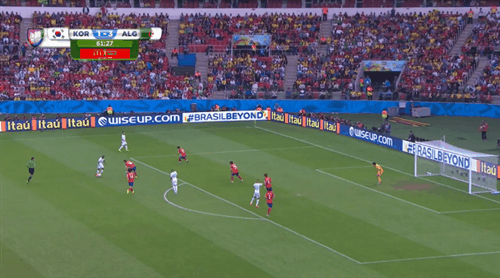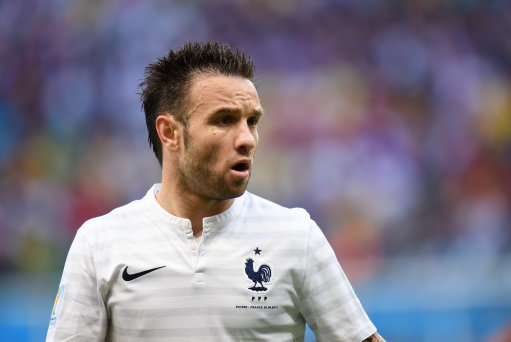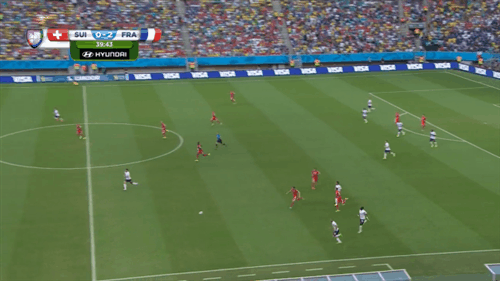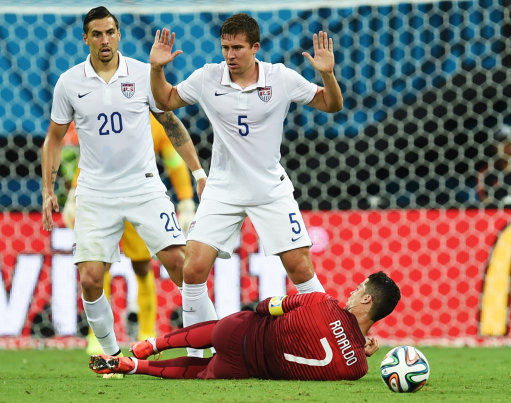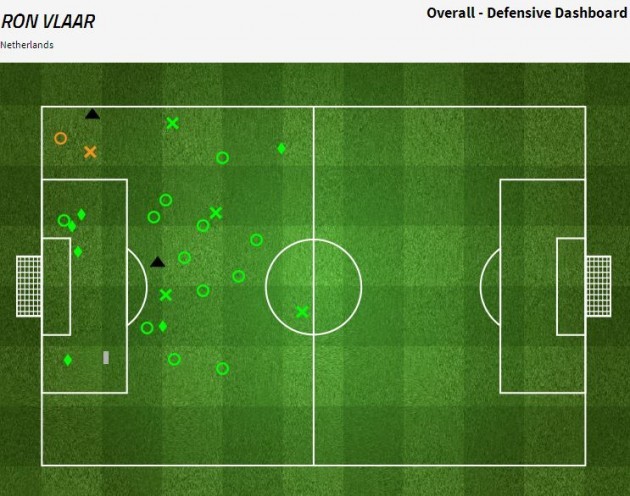Updated at 22.16
Enner Valencia (Ecuador)
Three goals in three matches is a pretty impressive record at the best of times. When a player racks up such a statistic in their very first World Cup, it’s inevitable that people will stand up and take notice.
Though the Ecuadorian team was set to base itself around another, more-experienced Valencia, it was the 24 year-old who took control instead and quickly proved the inspiration for his side. After just 22 minutes of his tournament debut, he had grabbed a goal. It came as a result of some awful marking from the Swiss defenders but it still required a composed finish from the youngster and it provided a platform for him as the competition progressed.
His best performance came in the do-or-die group-stage clash with Honduras. Trailing to a Carlos Costly goal after half an hour, Ecuador hit back just three minutes later when Valencia expertly followed a wayward shot that was veering well wide of the far post and diverted it to the net. His third goal of the tournament arrived on 65 minutes when he showed superb aerial prowess to get up and glance a close-range header to the net.
Against France, Valencia was starved of the ball as his team-mates sat deep and tried to frustrate Didier Deschamps’ side. When there was some service, it was always through a long-ball – Ecuador desperate to relieve the pressure. But, Valencia had little chance to cause any problems: he the 5ft 7in attacker, Laurent Koscielny towering above him. The one chance he did have came as a result of an audacious jump – as cult as you can get, really.
http://vine.co/v/MtDTbuuvLaD
Sofiane Feghouli (Algeria)
Much has been made about the success of ‘number 10s’ at the World Cup. Lionel Messi, Neymar and James Rodriguez lead the way but Karim Benzema also impressed while there was a rebirth of sorts for Wesley Sneijder. But Algeria’s success in reaching the round of sixteen couldn’t have been achieved without the stand-out performances of Sofiane Feghouli.
It was he who made history in the team’s first game against Belgium. But as much as he scored Algeria’s first goal at this World Cup, he made it too. His pace proving too much for Jan Vertonghen who brought him down in the area, just as he was about to latch onto a cross from the left-side.
https://vine.co/v/MIQ6tLUnjgv
As Belgium pressed hard in the latter stages, Feghouli was forced to drop off and help out at the back, a responsibility he didn’t shirk despite his natural tendencies to avoid defensive work.
Against South Korea, Feghouli was hugely influential as he, Slimani and Brahimi caused the Asian side constant problems. He created three key chances – one of those finished brilliantly by Brahimi after a deft pass from Feghouli.
After a number of solid seasons with Valencia in Spain plus the impressive World Cup performances, it’s little wonder that Feghouli is hot property.
Mathieu Valbuena (France)
There was consternation (mainly in England) when Samir Nasri was left out of the French World Cup squad. But Didier Deschamps wanted a calm and undivided dressing room. He also could rely on Mathieu Valbuena to prove the same composure on the pitch. What the Marseille man lacks in height, he makes up for in energy and purpose. He can whip in some super set-pieces and there’s a deftness to his play that’s often under-valued.
Following France’s impressive opening performances, much of the focus was placed on Paul Pogba’s all-round ability. But against Switzerland especially, Valbuena was a stand-out. He made one goal and scored another. In the attacking third, 11 of his 14 passes hit their target and he created two other key chances.
Against Nigeria, he conjured some excellent opportunities for team-mates and it was from his teasing cross that Joseph Yobo put through his own net to give France a 2-0 lead. Interestingly, keeping the hard-working, determined, team-player theme going, he didn’t shirk his defensive responsibilities, making three successful tackles.
He struggled against a resolute Germany in the last eight, seeing one decent strike saved by Manuel Neuer.
But overall, he delivered a couple of eye-catching displays and was a huge positive within the French side.
Matt Besler (USA)
Tim Howard got all the plaudits after the US suffered that heart-breaking 2-1 defeat to Belgium in the round of sixteen. But, the defence was outstanding too – none more so than Matt Besler.
As he and central defensive partner Omar Gonzalez had to contend with their full-backs bombing forward as well as a complete lack of screening from their midfield, they coped admirably. As the game dragged on, things became more frantic and the Belgians began to turn the screw. But, it was a miracle they failed to score in normal time. Besler made seven successful clearances inside his own area as well as one successful block and a tackle. His power and determination was evident in him winning two fouls inside the box and emerging victorious from an aerial duel too.
http://vine.co/v/MtuLFOL2nlP
Against Portugal, he was unfazed by the threat of Cristiano Ronaldo and helped to greatly restrict the attacker for the majority of the game. A commanding, physical presence in the centre of defence – perhaps a little bit of a throwback but relentlessly impressive.
Ron Vlaar (Holland)
Two players who have suffered from relentless criticism in England went to the World Cup, proved crucial to their respective teams and promptly enjoyed spectacular success. Take from that what you will.
But whereas Martin Demichelis got to experience the final, Ron Vlaar missed a decisive kick in the semi-final shoot-out and his incredible performance up to that point will forever be forgotten. In football, you’re defined by your mistakes. But as defensive displays go, Vlaar was superb against Argentina.
There were four interceptions in his area, one blocked shot and one successful clearance. But further out the field, he was just as impressive. He was intelligent throughout the tournament, didn’t take risks and when he was in possession, keeping with the Louis van Gaal philosophy, nothing was wasted. Despite cutting a seemingly old-fashioned and uncultured figure, his pass success rate was remarkable – 91%. From close to 42 passes per game, Vlaar was completing 38.
Outside of Javier Mascherano, it’s tough to easily recall such individual defensive consistency during the tournament. After such a superb tournament in Brazil, Vlaar deserves more than a return to Villa Park and another underwhelming Premier League campaign.
